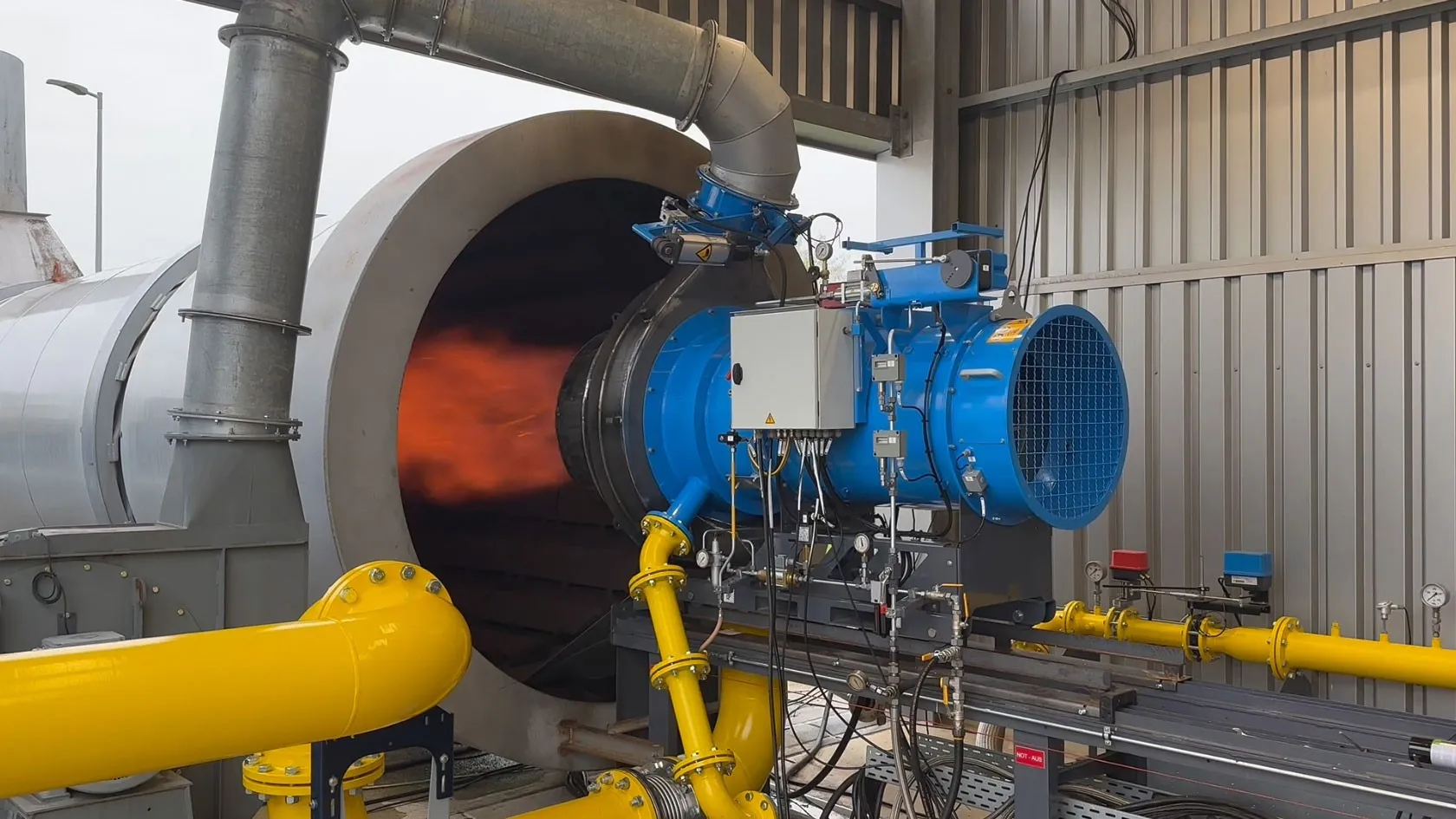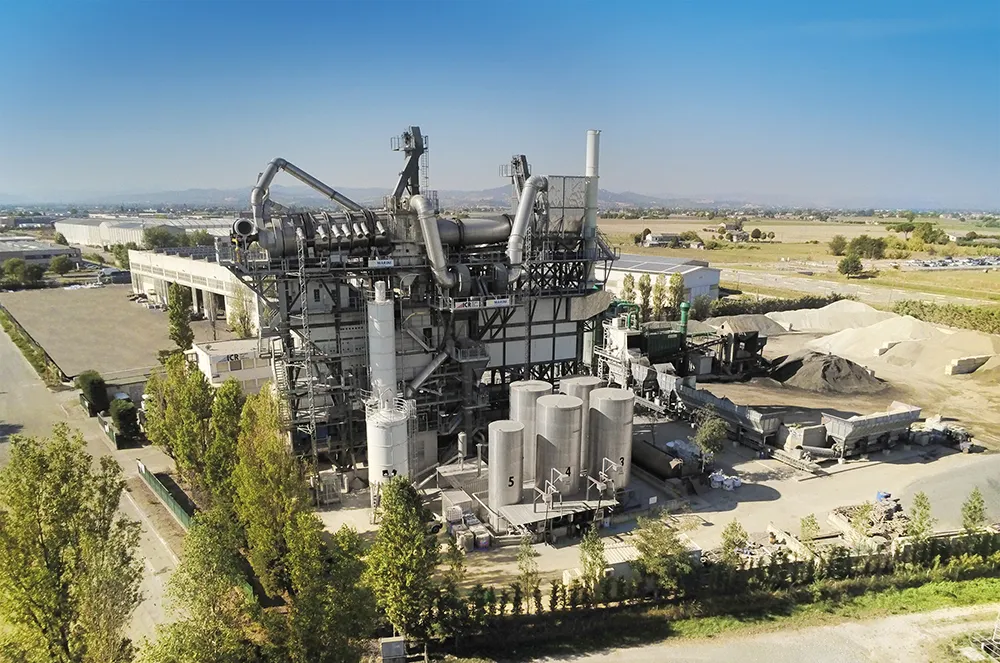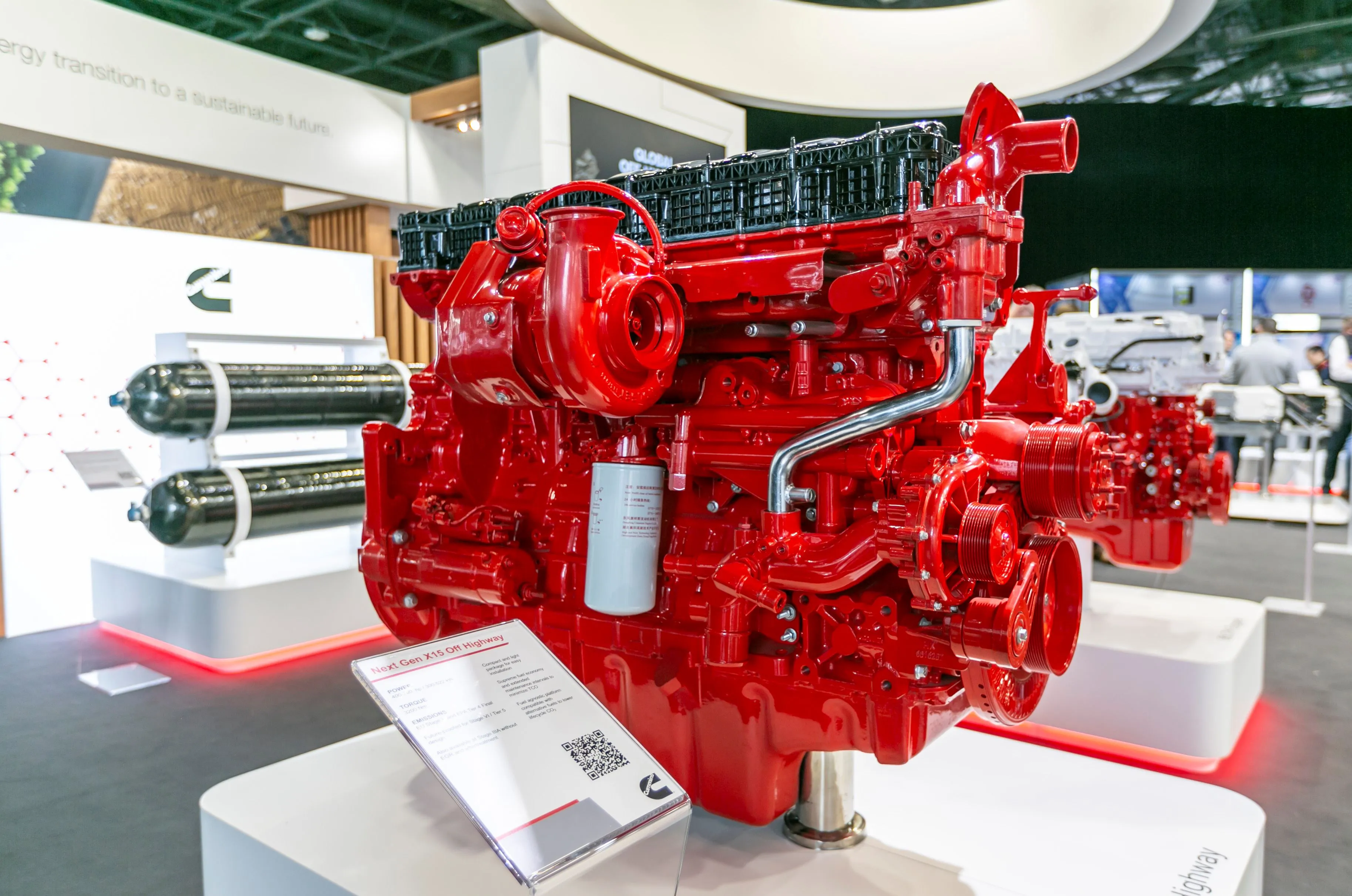
Benninghoven reports that a customer has now produced several thousand tonnes of asphalt using a burner running totally on hydrogen.
A thermal process is required for the production of asphalt. In this process, industrial burners heat and dewater the starting material – aggregates and/or reclaimed asphalt – before it is mixed with bitumen. To make this process as efficient as possible, Benninghoven says it has developed a new generation of burners that includes the control and drying system alongside the burner itself. With this system, up to four separate burners can be operated at the same time.
This flexible approach increases the cost-effectiveness of the overall facility, as its owner can always use the best-available energy sources.
The hydrogen burner from Benninghoven is supplied with an intelligent control system to maximise the efficiency during asphalt production. This includes control of the feed systems, including the pressure control section, drying section with burner and burner control.
Switching between fuels or combinations of multiple fuels is done on the fly, meaning that no shutdown or downtime is required and with only minimal temperature fluctuations in the process. Emissions – especially the nitrogen oxides (NOx) produced when using hydrogen as a fuel – are kept very low.
The company also says that the power draw has been reduced by 20% while keeping the feed capacity constant. Heat transfer efficiency has been significantly improved by maximising the use of the burner space and providing a burner control and geometry that ensures optimum flame production for each fuel.
Another significant benefit for plant operators – especially in urban environments – is the 5dB reduction in noise emissions.
Green hydrogen is currently the most sustainable fuel available. It produces no greenhouse gases and is suitable for the heating process thanks to its high energy density. In many cases, facility operators wanting to start using hydrogen as a fuel experience difficulties due to current limitations in their infrastructure. For this reason, Benninghoven says that it and its network of dealers are on hand to help.
Burner technologies from Benninghoven can be used to equip both new facilities and existing asphalt mixing plants, while Retrofit solutions can be deployed in plants from other manufacturers. This gives every plant operator the chance to upgrade to the latest technologies at any time – an important aspect for ensuring economic, sustainable asphalt production and long-term plant operations.









